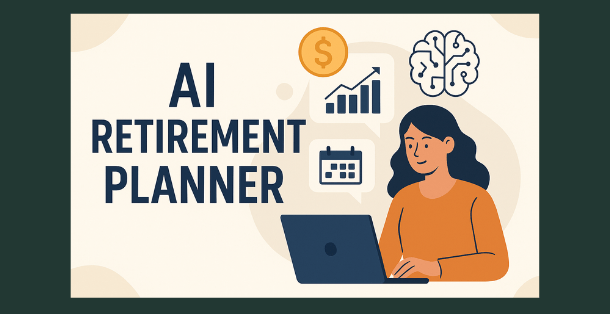Understanding Recession and Its Impact on Retirement
What Is a Recession?
A recession is a significant decline in economic activity lasting for months or even years. It typically features falling GDP, rising unemployment, and shrinking consumer confidence.
Why Retirement Portfolios Are Sensitive to Economic Downturns
Before diving in, it helps to understand the full retirement picture. Our Retirement Planning Pillar breaks down Social Security, income strategies, timelines, and smart decisions so you can retire with confidence.
Retirement portfolios are often tied to the stock market, which tends to fall during a recession. As investment values drop, your 401(k), IRA, or Roth IRA could experience temporary losses—impacting long-term growth if not managed wisely.
How Market Volatility During Recession Affects Your 401(k)
Historical Impact of Recessions on Retirement Accounts
During the 2008 financial crisis, many Americans saw their 401(k) balances drop by over 30%. While markets eventually rebounded, those nearing retirement had less time to recover.
Stock Market Drops and Retirement Savings
If your portfolio is heavy in equities, a recession could shrink its value. Those close to retirement face a higher risk of “sequence of returns” issues—where early losses hurt long-term income.
Should You Change Your Retirement Strategy During a Recession?
Timing the Market vs. Staying Invested
Trying to time the market is risky. Historical data shows that long-term investors typically recover more by staying the course rather than selling during downturns.
How to Rebalance Your Portfolio in a Recession
Review your asset allocation. You might shift some funds from high-risk stocks to bonds or cash equivalents. Avoid panic selling—rebalancing doesn’t mean abandoning your plan.
Best Safe Investments for Retirement During Recession
Bonds, Annuities, and Treasury Securities
These fixed-income investments can provide predictable returns and protect principal. Treasury Inflation-Protected Securities (TIPS) are especially valuable when inflation and uncertainty are high.
Gold, Real Assets, and Dividend Stocks
These “recession-resistant” assets help diversify your portfolio. Dividend-paying stocks continue to offer income even when prices drop.
Diversifying Your Portfolio to Weather a Recession
Why Diversification Matters Now More Than Ever
Spreading your money across different asset classes reduces your risk exposure. When one sector dips, others may stay stable or rise.
Recession-Proof Asset Allocation Strategies
Consider:
- 60/40 stock-to-bond portfolio
- Adding real estate via REITs
- Including international equities to hedge U.S. risk
Retirement Income Planning During a Recession
Adjusting Withdrawal Rates
If markets are down, withdrawing less can preserve your portfolio longer. Using the 4% rule? Consider lowering to 3.5% during recessionary periods.
Managing Required Minimum Distributions (RMDs)
If you’re over 73, RMDs can force withdrawals when markets are low. Consult a financial advisor to optimize your drawdown strategy or consider Roth conversions.
Stay in the know with retirement planning guides like this from official resources.
What Pre-Retirees Should Do in a Recession
Catch-Up Contributions and IRA Optimization
If you’re over 50, take advantage of catch-up limits on IRAs and 401(k)s. This is a great time to bulk up your savings while prices are low.
Explore Financial Planning Resources
Financial clarity improves when you have the right tools and explanations in one place. Explore our curated resources to better understand life insurance, retirement planning, and wealth-building strategies—designed to support informed, confident financial decisions.
Visit the Resources Page →Delaying Retirement as a Strategic Option
Delaying retirement by just one or two years can dramatically improve your Social Security payouts and allow your investments to recover.
Are you ready for retirement? Take this smart, quick quiz.
Common Mistakes to Avoid With Your Retirement Portfolio
- Panic selling after a market drop
- Stopping contributions during downturns
- Over-concentrating in one asset class
- Ignoring inflation and its effect on purchasing power
FAQs About Recession-Proofing Retirement Savings
1. Should I stop investing in my 401(k) during a recession?
No. Continue contributing to take advantage of “buying low” through dollar-cost averaging.
Find differences between 401(k), Roth IRA and pension.
2. Is it too late to diversify my retirement portfolio?
Never. Diversifying now is better than facing more risk later.
3. Can I move my retirement savings to gold during a recession?
Yes, but do so in moderation—gold is a hedge, not a replacement for your entire portfolio.
4. Will Social Security be affected by a recession?
Not directly, but long-term solvency concerns may affect future benefits.
5. What’s the safest investment during a recession?
Treasury bonds, CDs, and TIPS are among the most secure options.
6. Should I meet with a financial advisor during a downturn?
Absolutely. They can help you rebalance and align your strategy with your goals. Please [contact us] to find out your options.
If you want to see how this topic fits into your bigger retirement strategy— including Social Security timing, income planning, and risk management— explore our complete Retirement Planning Guide.
How to Stay Calm and Financially Ready in a Recession
A recession doesn’t have to derail your retirement goals. By staying diversified, avoiding knee-jerk reactions, and focusing on long-term planning, you can safeguard your retirement portfolio even during economic uncertainty. Now is the time to review your strategy, stay informed, and seek expert guidance.

Education builds clarity. Personalized planning provides direction. If you want to understand how these strategies apply to your financial goals, a thoughtful review can help you move forward with confidence.
Explore Your Options
